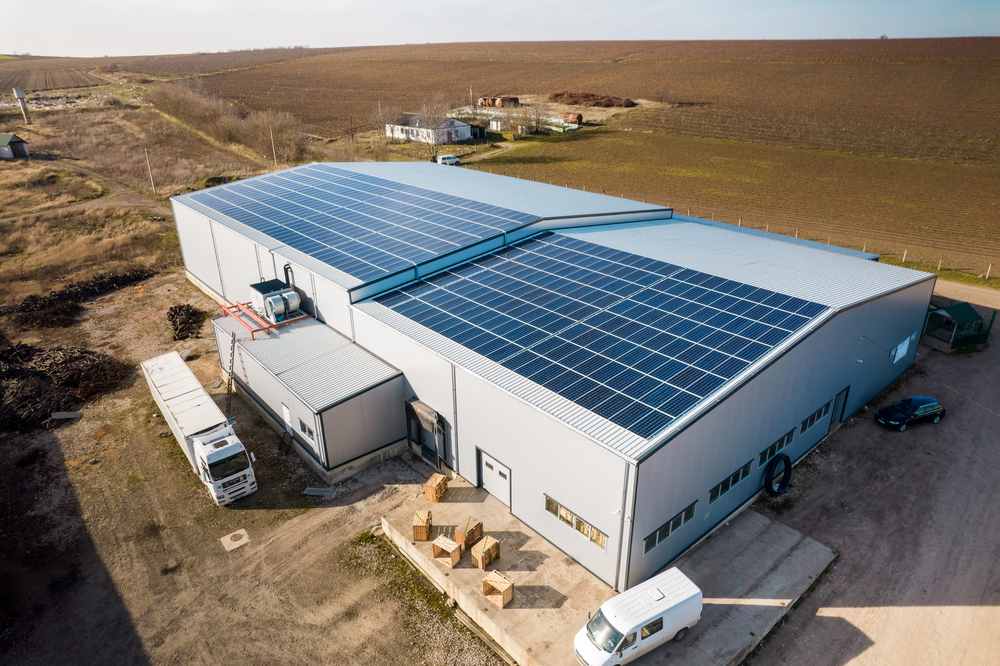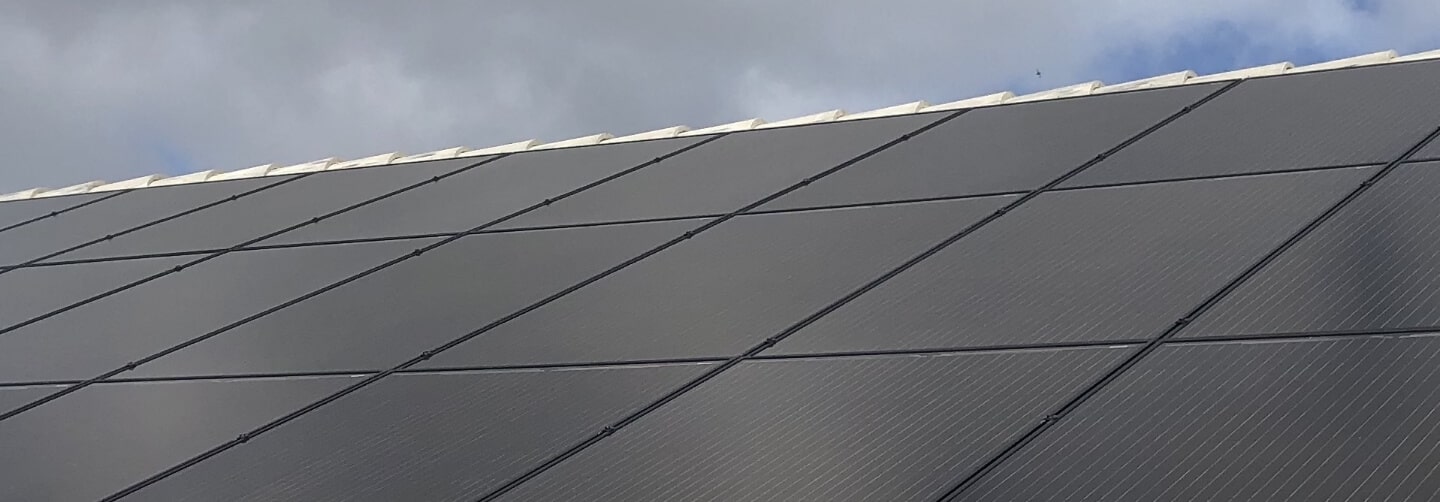How Long Do Commercial Solar Panels Last? Factors That Affect Their Lifespan

If you are considering installing commercial solar panels, you are likely wondering how long commercial solar panels last. Solar panels are designed to be a long-term investment, and understanding their lifespan is important to getting the most out of your system. Let us explore the factors that affect the lifespan of solar panels and how you can maximize their efficiency and longevity.
The Average Lifespan of Commercial Solar Panels
Typically, commercial solar panels have a lifespan of 25-30 years, though they can last even longer with proper maintenance. Over time, the efficiency of solar panels will gradually decline. However, most systems still produce a significant amount of energy beyond the 25-year mark.
It is important to note that the 25-year figure is just an average estimate. Some solar panels may start to degrade faster, while others may exceed expectations and continue to generate electricity at high efficiency for many years.
- Quality of the Panels
The quality of the commercial solar panels you choose plays a significant role in their longevity and performance. Panels made with advanced materials and cutting-edge technology tend to last longer and operate more efficiently.
There are three main types of solar panels: polycrystalline, monocrystalline, and thin-film. Among these, monocrystalline panels are the most efficient, offering higher energy output and a longer lifespan. They are more durable and better able to withstand harsh environmental conditions compared to polycrystalline or thin-film panels.
While high-quality panels may come with a higher upfront cost, the enhanced efficiency and extended lifespan they offer make them a smart investment for businesses looking to maximize their energy savings in the long term.
- Environmental Conditions
The environment in which your solar panels are placed has a direct influence on their durability and performance. Panels exposed to extreme weather conditions, such as heavy snow or intense heat, may experience more wear over time. For instance, freezing temperatures in the winter or scorching summer heat can accelerate panel degradation.
In areas like Southwest Florida, where high temperatures and humidity are common, solar panels are more vulnerable to issues like saltwater corrosion and the effects of constant sun exposure. It is necessary to factor in your region’s specific climate when planning for commercial solar panel installation. Working with your installer to choose the right type of panel suited to your location will guarantee optimal performance and longevity.
- Panel Maintenance and Cleaning
Regular panel maintenance is important for making sure that your commercial solar panels last for many years. While solar panels are low-maintenance, they still require occasional cleaning to get rid of debris, dirt, and bird droppings that can obstruct sunlight. This can reduce the efficiency of your system.
It is best to clean your panels two to four times a year depending on local conditions. For businesses located in areas with high dust or pollution, more frequent cleaning may be necessary. Professional cleaning services can help maintain your panels, ensuring that they continue to operate at peak performance for as long as possible.
- Installation Quality
The quality of the installation plays an important role in the longevity of your solar panels. If your solar system is installed improperly, it can lead to issues such as loose wiring, damaged components, or poor panel orientation, all of which can shorten the lifespan of your system.
It is important to hire an experienced and certified installer who can make sure that your commercial solar panels are correctly positioned, wired, and installed. Proper installation reduces the risk of damage and makes sure that your system functions as efficiently as possible over time.
- Panel Degradation Over Time
As solar panels age, their efficiency gradually decreases in a process known as degradation. On average, panels lose between 0.5% and 1% of their efficiency each year. While this rate may seem small, the cumulative effect over time can be significant.
After approximately 25 years, your solar panels might produce around 80% of their original energy output. Despite this reduction, most panels will continue to generate a substantial amount of power, ensuring that your business still benefits from a reliable energy source. Even with a slight drop in efficiency, the long-term savings and environmental benefits of solar panels remain substantial.
- Battery Storage and Longevity
If your commercial solar panel system includes battery storage for excess energy, it is important to note that batteries also have a lifespan. Most solar batteries last between 5 and 15 years, depending on the type of battery you use.
To extend the lifespan of your battery storage, it is important to follow the manufacturer’s recommendations for maintenance and avoid overcharging or discharging the batteries. Regularly checking the battery and ensuring it is functioning properly can help you avoid costly replacements.
- Roof Condition and Design
The condition and design of your roof play an important role in the lifespan of your solar panels. If your roof is old or in poor condition, it may require repairs or even replacement before installing solar panels. This makes sure that the panels are mounted on a stable surface and reduces the risk of damage during strong winds or storms.
In Southwest Florida, homes and businesses are often exposed to high winds and hurricanes, so it is important to make sure that your roof is in good condition before installation. Installing solar panels on a damaged roof can lead to costly repairs and premature system failure.
- Manufacturer Warranties and Performance Guarantees
Most commercial solar panels come with warranties that cover a certain period of time, usually 25 years for the panels themselves. These warranties often guarantee that the panels will maintain a minimum level of efficiency, typically around 80% of their original performance after 25 years.
Before installing solar panels, review the warranty terms carefully. A strong warranty offers peace of mind, knowing that the manufacturer will cover any defects or significant performance issues that may arise during the lifespan of the panels.
- Upgrade and Expansion Potential
As technology improves, businesses may want to upgrade their solar panel systems to increase energy production or add new features. Most commercial solar systems are scalable, meaning you can add additional panels or energy storage options as your energy needs grow.
If you are planning to expand your solar system in the future, make sure that your initial installation is designed with this possibility in mind. A well-designed system makes it easier to add new panels, storage, or other components without significant disruption to your existing setup.
- Impact of Technological Advancements
The rapid advancements in solar technology can also affect the lifespan and efficiency of your commercial solar panels. Manufacturers are continually improving the efficiency of solar cells, using new materials and technologies to boost energy conversion rates. These improvements mean that newer solar panels may last longer and generate more energy than older models.
Upgrading your solar system to include the latest technology can help your business benefit from higher energy yields and longer-lasting panels. However, it is important to consult with your solar installer to make sure that any upgrades or system expansions are compatible with your existing setup.
- Effect of Dust and Debris on Solar Panel Lifespan
In certain environments, particularly in areas with a lot of dust, pollution, or agricultural activity, dust and debris can build up on the surface of commercial solar panels, blocking sunlight and causing the panels to lose efficiency over time. This buildup not only affects performance but can also contribute to the gradual wear and tear of the panels.
Regular cleaning and maintenance can help remove dust, bird droppings, and other debris, ensuring your solar panels continue to operate at maximum efficiency. By taking action to remove these contaminants, you can help extend the lifespan of your system, especially if your panels are in areas prone to high dust or particulate matter.
- Panel Placement and Orientation
The placement and orientation of your commercial solar panels significantly influence their lifespan and energy production. Ideally, panels should be installed with the correct tilt and orientation to capture maximum sunlight throughout the day. If the panels are improperly positioned, they may experience more strain and wear over time, reducing their overall efficiency and lifespan.
In regions like Southwest Florida, the optimal orientation for solar panels is usually south-facing, with a tilt angle that accounts for seasonal sun exposure. Ensuring that your panels are correctly positioned not only improves energy production but also reduces unnecessary strain, contributing to a longer system lifespan.
How Solar Energy Solutions of America Can Help
At Solar Energy Solutions of America, we specialize in providing high-quality residential photovoltaic solar electric systems for businesses in Southwest Florida. Our team offers expert guidance in selecting, installing, and maintaining commercial solar panels to maximize their lifespan and efficiency. We also offer additional solar solutions such as solar pool heaters and solar attic fans to further enhance your property’s energy efficiency.
